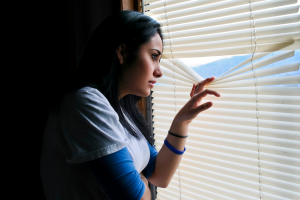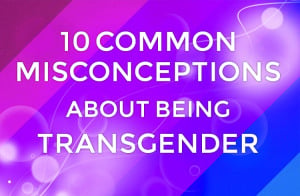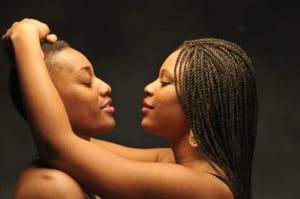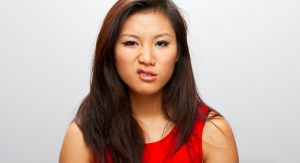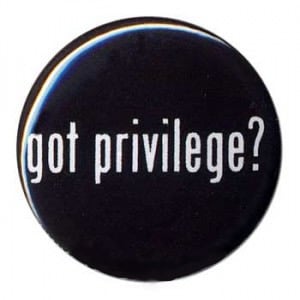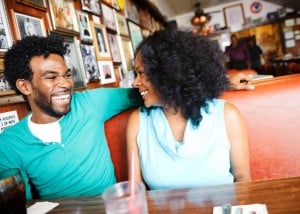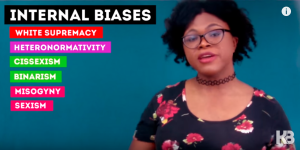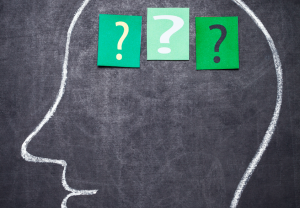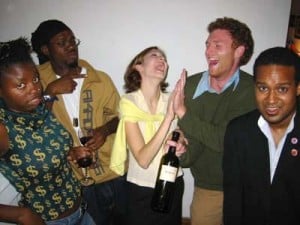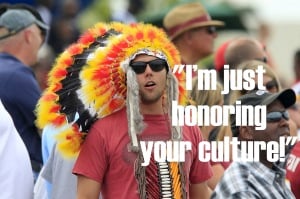(Content Warning: Depiction of harassment and attempted violence in public)
I am going to tell you a story. While this story is about the nature of street harassment, it isn’t just about the person who assaulted me.
It’s about how other people responded to my attack: The people who witnessed me scream, “STOP,” and yell, “HELP,” and who did nothing; the people who later chastised me for “putting myself in that situation” in the first place; the people who still seem to think the solution to public violence is disassociation and individualism.
This is a story about how we all can do better to keep each other safe.
It was six, maybe seven at night on a Tuesday, and I was in a damn good mood.
My work day was over, I was going to an all QTPOC social justice stand-up comedy workshop that I was co-producing, and I knew that my not-so-secret crush would be there. I had dressed extra cute, applied my make-up perfectly, coiffed my hair like a professional, and I was ready to get all of my flirt on.
But first, I decided to stop at the Walgreens on the corner and get some allergy medicine. I was sniffling a little, and I couldn’t foresee a runny nose and some red eyes positively contributing to my grand romantic aspirations.
Right as I stepped into the store, I noticed a brotha paying extra close attention to me. He was slightly taller than my five-foot-four frame, dressed comfortably in loose fitting jeans and a button-down shirt, and had nicely groomed facial hair – and y’all should know that I really love facial hair.
I might as well be transparent from the start and confess this not-even-remotely critical information: He smiled at me, and I smiled back. Extra wide. I thought he was cute, and I ain’t ashamed!
The problem escalated, however, when he perceived my smile – and likely general demeanor – as a promise for something more.
I’m a free-spirited, very embodied, deeply sensual, extremely friendly person. Flirtatious energy comes easy for me. I often wear super tight, “traditionally feminine” clothing. My hips sway when I walk. I smile and make eye contact with strangers all the time. I’m quick to offer up a hello and a compliment if someone sustains eye contact with me or is rocking an outfit or hairstyle that I appreciate.
And yet, none of what I just confessed – not my smile, not my eye contact, not my attraction to him, not my apparel – validates the violence that was soon to come.
Being Friendly (Flirtatious Even!) Doesn’t Justify Street Harassment
I should be able to smile as much as I want, whenever I want, at whomever I want, without worrying if some random man will stalk, harass, or assault me in response.
But that’s what rape culture and misogyny does, right?
It teaches men to believe that any woman by herself is available for his desire, and that anything she does that piques his interest makes her game for his consumption.
It tells us that when we display any sign of appreciation, friendliness, sexiness, or kindness, we have, essentially, promised our time, energy, body, or sustained interest to the man in question.
Excuse me while I go cough at all that bullshit.
A culture that tries to tell me that showing up as my authentic self and being open to casual interaction with strangers makes it okay for me to be violated can go stand in a corner, all by itself, and cry from loneliness – ‘cause I’m completely uninterested.
I’m interested in connection, community, and freedom. To exist in a world where we don’t mistake capitalism’s notion of individualism and constant autonomy with strategies for safety.
I don’t want to participate in a society that teaches us to be so afraid of the potential of a violent encounter that we don’t acknowledge or interact with each other.
And, you know, as a Black woman whom people generally tend to be afraid of without even knowing, smiling and interacting with strangers is critical to my praxis and my safety. People treat me badly when they’re afraid of me.
They covertly follow me around stores.
They panic when I get close to them late at night. They tell me they’re surprised by how nice, or eloquent, or quirky I am – because people still, even when they don’t realize they’re doing this, tend to lump all Black people into this very narrow, tiny box informed by all the stereotypes they’ve been conditioned to believe.
And I get it. I have to incessantly fight my own urge to do the same thing to people who I’ve been socialized to have pre-established prejudices about.
This is why I want to know and love the people with whom I share locational space. It is connection, familiarity, and emotional investment that keep us safer and more willing to protect each other when we see harm happening.
This fear-oriented complacency is what allows for the sustainability of rape culture and every other form of oppression.
Ignoring Each Other Is Not the Way to Create Safety
Our not recognizing each other’s basic presence in shared space means that we don’t engage with the blatant or subtle ways we experience violence.
It means we don’t have compassion for people with whom we aren’t intimately connected, means we’re less likely to fight for each other’s basic freedoms, means we rely on stereotypes to inform us of how to interact with others, that we don’t hold each other accountable when we violate ourselves and each other, that all this social justice stuff we write and talk and think and study about is completely irrelevant.
In order to be truly invested in anti-oppression, we need to be equitably invested in the people moving beside us in the world.
But sadly, we often associate friendliness and openness with naiveté and victimhood. And when I am targeted, I get told by other folks that what happened to me is my fault.
Jezebel, grrrrl, you know better than to walk around smiling.
Jezebel, grrrl, you know better than to talk to strange men.
Jezebel, grrrl, you know what happens when you wear those kind of dresses in public.
Thanks for the shame Kool-Aid. Now can we address the real problem? And that’s a culture so rooted in protecting structures of privilege that we incessantly blame the oppressed, a culture so terrified of addressing oppression that we create practices rooted in avoidance and repression.
In this cycle, the only folks who win are those who direct and exploit it – unless the rest of us make a drastic change.
We Need to Practice Courage and Educate Each Other as Much as We Possibly Can (Also, Back to My Story)
It is not my responsibility to have any conversation with any man if I don’t want to, but I choose to have conversations because I know that many people really don’t understand the difference between consensual connection and sexual harassment, and I feel comfortable and confident enough to talk about it.
It’s important that those of us who have the comfort and ability to be educators educate every opportunity we get. This is how we make community safer. Because honestly, how else are people supposed to learn if no one tells them?
This choice does not make me a good or bad feminist. It’s simply a choice and should not be used to evaluate me or any one else.
I solidly believe in safety. While I do push myself to be courageous and advocate for what I believe, I only engage when I feel like the people in question are amenable to that dialogue.
I follow my instinct. Usually, I’m more than okay and leave the interaction feeling safer and more connected to my environment. But on this occasion, I was super wrong.
He followed me into the store: “Hey. Hey Queen! I’m trying to talk to you!”
We were about three feet away from the security guard, 15 feet away from the cashiers and the very long line of customers waiting to purchase their items. I breathed in deep and stuck out my hand.
“Hi,” I said, reserved but warm. “My name is JDX. What’s yours?”
He looks at me suspiciously, clearly surprised that I responded, and asked, “Where’s your man at?”
Before I could respond, he growled, “Fuck it, to be real, I could give a fuck about your man. I just wanna know what I gotta do to get what you got.”
I wasn’t scared. Yet.
However, his response made it clear that he wouldn’t be open to the more thorough and engaging conversations I normally have. I decided to be cordial, let him know that his behavior was not acceptable, and continue on about my business.
“Sir,” I began. “It’s not okay to talk to people like that. I hope you have a nice day, and I’m going to continue shopping.”
He blinked at me, confused. I saw his brain go into overload, thoughts rippling across the flesh of his face. And then he settled on a decision.
“Fuck you, you fucking ugly-ass, fat-ass, Black-ass bitch.”
I felt bad for him. I felt really bad for him. Underneath his aggression and profanity, there was a whole lot of rejection and desperation in his demeanor.
And while this isn’t an excuse, I understand why. Being a Black man in America, where the system is consistently set up to hold you back and shut you down, is really fucking hard. Even more so, it’s painful.
That man looked at me with a loathing fueled by centuries and centuries of systemic oppression and rejection, and as a Black woman with trauma informed by so many marginalized identities and intersectional oppressions, I saw a lot of my own reflection in him. I know what that kind of rejection feels like. I know how that sort of dis-ease sits in the body.
This is why I need to be open and in community with people: I don’t want to feel this way. I don’t want any one to feel this way – especially other folks like me who constantly ride the margins of our society.
When some people feel small and haven’t been given the tools to find power and healing inside of themselves, they try to find power and relief at the expense of someone else.
This Is the House That Oppression Built!
But even still, with all my compassion and concern, I wasn’t here to further engage in his violence.
I wasn’t interested in being his verbal punching bag. I wasn’t going to let him direct his misogynistic violence at me as a way of coping with racism, classism, and whatever other oppression he might have been experiencing.
I ain’t about that life, so I started to walk away.
But before I could even reposition my body to turn around, he lunged at me. He literally lunged at me.
I jumped back and screamed, “What are you doing? Don’t do that!”
I turned to look at the security guard who was standing next to us and who had been standing right next to us for the entire duration of the conversation. He said nothing, took a few steps away and turned his back, examining the make-up section.
The cashiers and the people in line darted their gaze in our direction, looking away when my own eyes desperately scanned the space for help.
During this period, the man lunged at me two more times. It wasn’t until I started screaming at the top of my lungs “Help! Help! Help!” that he stopped, snarled “crazy, ugly-ass bitch,” and left the store.
I stood there, heart pounding, waiting for someone to say something. The security guard went back to his post. The cashiers and customers continued about their interaction.
Though I had just finished yelling at the top of my lungs, absolutely nothing had happened.
Everyone was too busy being afraid, disconnected, and invested in their individual worlds to do anything to help another person in desperate need.
I am so grateful that man decided to leave on his own because if he would have decided to go further and cause harm to my physical body, I would have been shit out of luck.
While I absolutely blame him, I also blame the culture that created him, that taught all those people in that store to take care of themselves and not help a stranger, that conditioned so many people to tell me that what happened was my fault afterwards, and that consistently invisiblizes Black women in distress.
This, my friend, is rape culture.
This is the culture that our silence, our individualism, our disassociation, our fear, and our victim blaming upholds.
A culture that I hope, with just a little more loving interaction amongst strangers, we can work towards eradicating.
[do_widget id=”text-101″]
Vanessa Rochelle Lewis is the Senior Editor at Everyday Feminism. She is a queer, lush-bodied, Black, femme performance artist, writer, actress, educator, and Faerie Princess Mermaid Gangsta for the Revolution. She loves romantic songs, romantic films, romantic books, romantic conversations, romantic friendships, and writing long, vulnerable Facebook statuses (about romance). Speaking of Facebook, please add her here.
Search our 3000+ articles!
Read our articles about:
Our online racial justice training
Used by hundreds of universities, non-profits, and businesses.
Click to learn more


